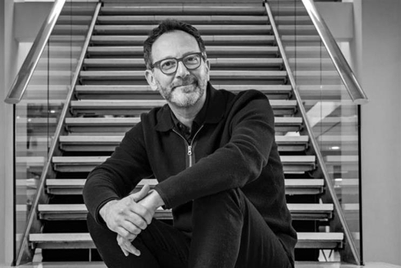
‘Regional revitalisation’ remains a hot topic in Japan, and work directed toward this goal is decidedly hit and miss. But there are some gems to be found, even when their ultimate goal is to increase sales for a brand. Here, we look at an improbable example that has had positive results for both a consumer product and a regional area.
The ‘Hair Growth Station’ is an initiative by Oricom, a Japanese advertising agency, for Mesocare-Plus, a shampoo brand, which also provided support to a struggling local railway line and town.
Background
Mesocare-Plus wanted to draw attention to its claim that it can protect thinning hair—something very precious, according to Oricom—from the strain of modern life. Seemingly unrelated, the 6.4 kilometre Choshi Electric Railway in Chiba prefecture was going out of business due to a steady decline in the number of tourists to the town.
Concept and execution
The shampoo brand decided to take advantage of the situation in a way that would hopefully also re-energise the Choshi area as a destination.
So desperate was the train line’s situation that it decided to sell naming rights to seven out of its nine stations. Mesocare bought the rights to the station of Kasagami Kurohae for 1.5 million yen (around US$15,000) for the year. In December 2015, Mesocare changed the name to ‘Kaminoke Kurohae’, referring to the growth of strong, healthy black hair. It positioned the stop as a ‘Utopia for Hair’.
To promote the new destination, a limited batch of 100 tickets printed on konbu (kelp, which is believed to be good for hair) were put up for sale, selling out in the space of a week. A video and outdoor media including the obligatory station signage drew further attention to it.

Results
To be clear, there is nothing at Kaminoke Kurohae that actually helps hair grow. The area got its 'Kurohae' name from the plentiful black rocks in the area—nothing more. So baldies expecting to leave with a full head of hair may have been disappointed. Still, the buzz the stunt generated was impressive.
Media impressions totaled nearly 91 million between December 2015 and the end of April 2016: nearly 75 million on TV, 7.3 million in newspapers and close to 9 million online. Most importantly for the brand behind it all, sales increased considerably in percentage terms (Mesocare requested that the exact figure not be published).
The campaign also led to a 23 percent year-on-year increase in passengers on the Choshi Electric line, and an 11 percent year-on-year increase in visitors to the town of Kasagami Kurohae.
To an outsider, it might seem strange that such a small initiative became such a big deal. Hiroto Sekiguchi, who worked as a copywriter and producer on the campaign, says the novelty factor helped generate buzz, but was not enough on its own. He indicated that with the struggles of regional areas a widely known problem in Japan, people are keen to help the cause when a destination does something to help itself. He added that Japan has many "railway fans" who are keen to see local railways preserved, and were inclined to support the initiative in any way they could.
The name will remain in place until December 2016. It has not yet been confirmed whether Mesocare will renew its sponsorship for 2017.


.jpg&h=334&w=500&q=100&v=20250320&c=1)

.jpg&h=334&w=500&q=100&v=20250320&c=1)

.jpg&h=334&w=500&q=100&v=20250320&c=1)






.jpg&h=268&w=401&q=100&v=20250320&c=1)





